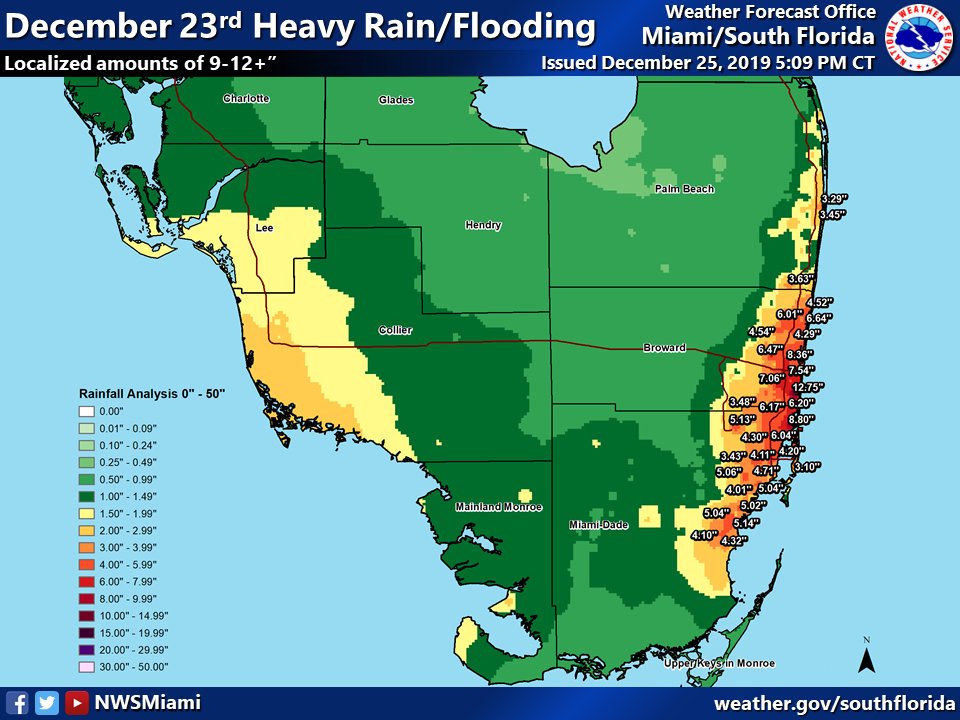Navigating the Risks: Understanding Miami’s Flood Zone Maps
Related Articles: Navigating the Risks: Understanding Miami’s Flood Zone Maps
Introduction
With enthusiasm, let’s navigate through the intriguing topic related to Navigating the Risks: Understanding Miami’s Flood Zone Maps. Let’s weave interesting information and offer fresh perspectives to the readers.
Table of Content
Navigating the Risks: Understanding Miami’s Flood Zone Maps

Miami, a vibrant coastal metropolis, faces a significant threat from flooding. Rising sea levels, increasingly intense storms, and the city’s unique geography combine to create a complex and evolving flood risk landscape. Understanding the nuances of Miami’s flood zones is crucial for residents, businesses, and policymakers alike. This article delves into the intricacies of these maps, exploring their significance, benefits, and practical applications.
Delving into Miami’s Flood Zones
Miami’s flood zone maps, developed and maintained by the Federal Emergency Management Agency (FEMA), are the primary tool for identifying areas vulnerable to flooding. These maps are based on a comprehensive analysis of historical flood data, topographical information, and projected sea level rise scenarios. They categorize land into various flood zones, each representing a distinct level of flood risk.
Types of Flood Zones
The most common flood zones in Miami are:
- Zone A: Areas with a 1% annual chance of flooding, also known as the "100-year floodplain." These zones are subject to the highest risk of flooding and require mandatory flood insurance for properties with federally backed mortgages.
- Zone B: Areas with less than a 1% annual chance of flooding, but still considered at risk. Flood insurance is not mandatory in these zones but may be recommended.
- Zone C: Areas with a minimal risk of flooding, but still considered within the floodplain.
- Zone X: Areas outside the floodplain and generally considered to have a low risk of flooding.
Beyond the Basics: Understanding the Complexity
While these basic categories provide a general understanding of flood risk, Miami’s flood zone maps are more nuanced. Factors such as elevation, proximity to water bodies, and the presence of flood control infrastructure influence the specific flood zone designation.
The Significance of Flood Zone Maps
Miami’s flood zone maps serve as a critical tool for:
- Risk Assessment: They provide a clear visual representation of flood risk across the city, enabling residents and businesses to understand the potential consequences of flooding.
- Mitigation Planning: The maps are essential for developing effective flood mitigation strategies, such as building codes, infrastructure improvements, and emergency preparedness plans.
- Insurance Coverage: They determine the requirement for flood insurance and influence insurance premiums.
- Property Value: Flood zone designations can significantly impact property values, as buyers are increasingly aware of the risks associated with flooding.
- Urban Planning: The maps guide urban planning decisions, ensuring that new development projects are located in safer areas and minimize flood risk.
Benefits of Understanding Flood Zones
Understanding Miami’s flood zone maps offers numerous benefits:
- Informed Decision Making: Knowledge of flood risk allows residents to make informed decisions about property purchase, renovation, and insurance coverage.
- Reduced Financial Losses: By taking appropriate precautions, such as elevating structures or purchasing flood insurance, residents can significantly reduce their financial losses in the event of a flood.
- Enhanced Safety: Awareness of flood risks enables residents to prepare for potential events and implement necessary safety measures.
- Community Resilience: A collective understanding of flood zones fosters community resilience by encouraging collaboration and preparedness efforts.
Frequently Asked Questions
1. How do I find out my property’s flood zone?
You can access Miami’s flood zone maps through the FEMA website (www.fema.gov) or through the City of Miami’s website. You can also contact the Miami-Dade County Department of Planning and Zoning for assistance.
2. What are the consequences of building in a flood zone?
Building in a flood zone can expose you to significant financial risks, including potential damage to your property and increased insurance premiums.
3. Do I need flood insurance if my property is not in a flood zone?
While flood insurance is not mandatory for properties outside the floodplain, it is still advisable to consider it. Even areas with a low risk of flooding can experience unexpected events.
4. What are the current flood mitigation efforts in Miami?
Miami is actively implementing various flood mitigation strategies, including elevating structures, improving drainage systems, and creating green infrastructure.
5. What are the future projections for flooding in Miami?
Climate change is expected to exacerbate flood risk in Miami. Rising sea levels, increased storm intensity, and coastal erosion are projected to lead to more frequent and severe flooding events.
Tips for Navigating Flood Zone Maps
- Consult Professionals: For complex flood risk assessments, consult with engineers, architects, and insurance agents.
- Stay Informed: Stay informed about flood-related news and updates from official sources.
- Develop a Flood Plan: Create a family emergency plan that includes evacuation routes, communication strategies, and essential supplies.
- Consider Flood Insurance: Even if your property is not in a flood zone, consider purchasing flood insurance to protect yourself from unexpected events.
Conclusion
Understanding Miami’s flood zone maps is paramount for navigating the city’s unique and evolving flood risk landscape. These maps serve as a vital tool for risk assessment, mitigation planning, insurance coverage, and informed decision making. By embracing this information, residents, businesses, and policymakers can work together to mitigate flood risk, enhance community resilience, and ensure a safer future for Miami.







Closure
Thus, we hope this article has provided valuable insights into Navigating the Risks: Understanding Miami’s Flood Zone Maps. We appreciate your attention to our article. See you in our next article!